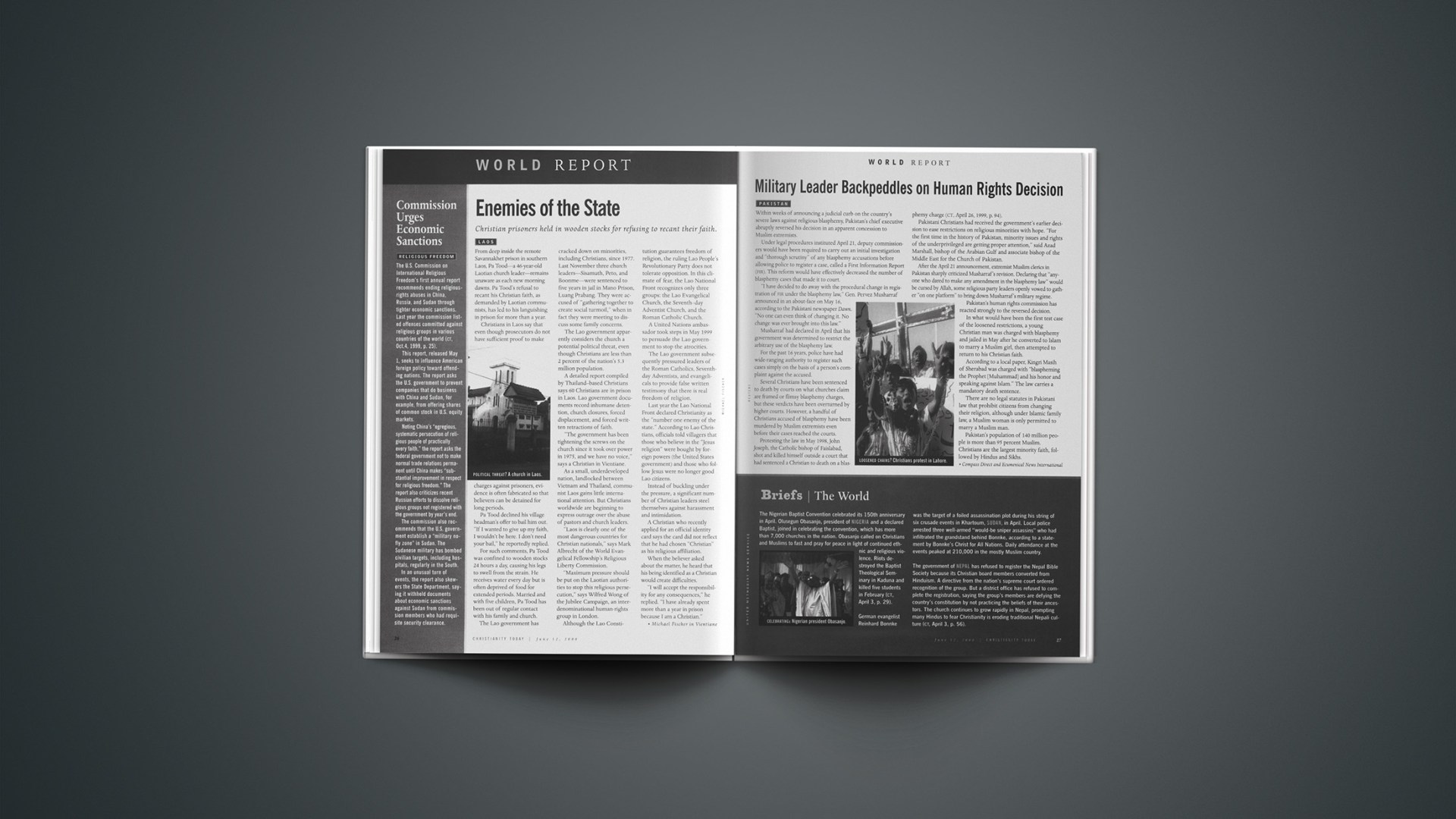Within weeks of announcing a judicial curb on the country’s severe laws against religious blasphemy, Pakistan’s chief executive abruptly reversed his decision in an apparent concession to Muslim extremists.Under legal procedures instituted April 21, deputy commissioners would have been required to carry out an initial investigation and “thorough scrutiny” of any blasphemy accusations before allowing police to register a case, called a First Information Report (FIR). This reform would have effectively decreased the number of blasphemy cases that made it to court.”I have decided to do away with the procedural change in registration of FIR under the blasphemy law,” Gen. Pervez Musharraf announced in an about-face on May 16, according to the Pakistani newspaper Dawn. “No one can even think of changing it. No change was ever brought into this law.”Musharraf had declared in April that his government was determined to restrict the arbitrary use of the blasphemy law.For the past 16 years, police have had wide-ranging authority to register such cases simply on the basis of a person’s complaint against the accused.Several Christians have been sentenced to death by courts on what churches claim are framed or flimsy blasphemy charges, but these verdicts have been overturned by higher courts. However, a handful of Christians accused of blasphemy have been murdered by Muslim extremists even before their cases reached the courts.Protesting the law in May 1998, John Joseph, the Catholic bishop of Faislabad, shot and killed himself outside a court that had sentenced a Christian to death on a blasphemy charge (CT, April 26, 1999, p. 94).Pakistani Christians had received the government’s earlier decision to ease restrictions on religious minorities with hope.
“for the first time in the history of Pakistan, minority issues and rights of the underprivileged are getting proper attention,” said Azad Marshall, bishop of the Arabian Gulf and associate bishop of the Middle East for the Church of Pakistan.After the April 21 announcement, extremist Muslim clerics in Pakistan sharply criticized Musharraf’s revision. Declaring that “anyone who dared to make any amendment in the blasphemy law” would be cursed by Allah, some religious party leaders openly vowed to gather “on one platform”
to bring down Musharraf’s military regime.Pakistan’s human rights commission has reacted strongly to the reversed decision. In what would have been the first test case of the loosened restrictions, a young Christian man was charged with blasphemy and jailed in May after he converted to Islam to marry a Muslim girl, then attempted to return to his Christian faith. According to a local paper, Kingri Masih of Sherabad was charged with
“blaspheming the Prophet [Muhammad] and his honor and speaking against Islam.”
The law carries a mandatory death sentence.There are no legal statutes in Pakistani law that prohibit citizens from changing their religion, although under Islamic family law, a Muslim woman is only permitted to marry a Muslim man.Pakistan’s population of 140 million people is more than 95 percent Muslim. Christians are the largest minority faith, followed by Hindus and Sikhs.
Copyright © 2000 Christianity Today. Click for reprint information.










